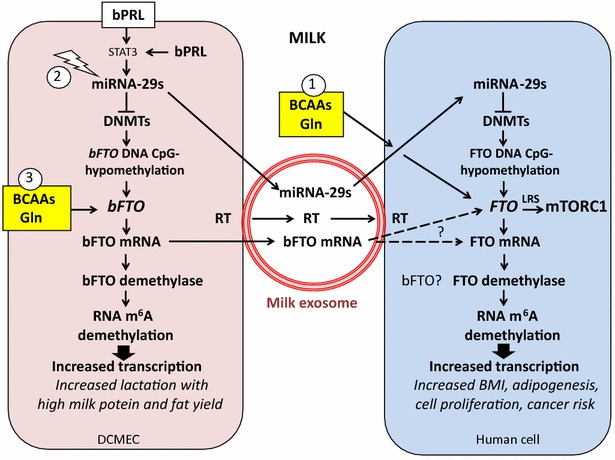Fig. 1.

Working model presenting milk-mediated epigenetic activation of FTO-driven transcription. Milk functions in analogy to a retroviral infection via exosome transfer to the cells of the milk recipient. Milk exosomes transport bioactive miRNA-29s that reduce the expression of DNA methyltransferases (DNMTs) resulting in epigenetic activation of human FTO via DNA hypomethylation. Bovine milk exosomes apparently transfer bovine FTO mRNA and reverse transcriptase (RT) that may result in bFTO mRNA retroconversion into the human genome. (1) Milk provides abundant amounts of branched-chain amino acids (BCAAs) and glutamine (Gln) that activate FTO and mTORC1. (2) Bovine milk production is enhanced by increased expression of miRNA-29s and certain bFTO gene polymorphisms. (3) Dairy cow feeding with BCAA-enriched concentrated feedingstuffs upregulates bFTO mRNA and protein expression. Efforts of veterinary medicine intended to maximize milk yield associated with increased dairy cow mammary epithelial cell (DCMEC) transcription have an epigenetic impact on FTO expression of the human milk consumer. FTO, the critical m6A demethylase, upregulates transcription, adipogenesis, and gluconeogenesis promoting postnatal growth
